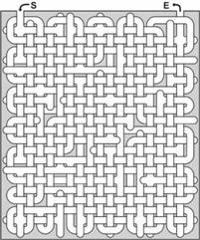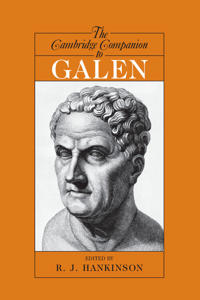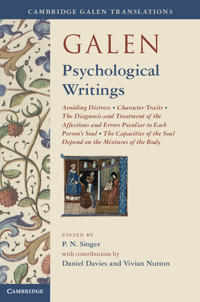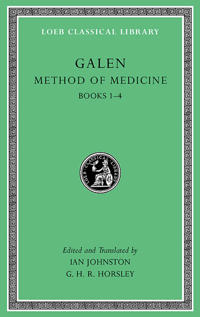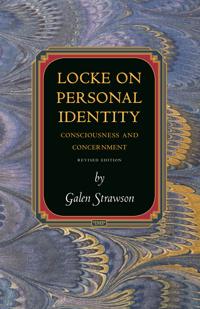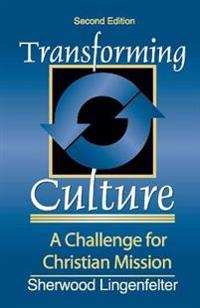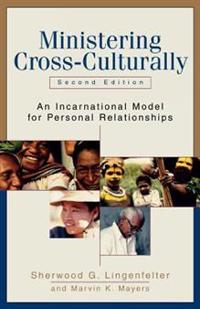The Ultimate Maze Book (Pocket)
avGalen Wadzinski
ISBN: 9780486445359 - UTGIVEN: 200509Thirty entertaining, challenging mazes, involving 3-D constructions, directional arrows, designated stops, and more, are categorized by difficulty into five levels--from "No Brainers" that take about five to ten minutes to solve, to "Full Brain Overload," mazes that might take hours to find a soluti[...]
John Galen Howard and the University of California: The Design of a Great Public University Campus (Inbunden)
avSally Byrne Woodbridge
ISBN: 9780520229921 - UTGIVEN: 2003-01-23Galen (Pocket)
avOwen (EDT) Powell, John (FRW) Wilkins, Owen (EDT) Powell
ISBN: 9780521036207 - UTGIVEN: 2007-06This book presents a translation of and detailed commentary on Galen's De alimentorum facultatibus - his major work on the dynamics and kinetics of various foods. It is thus primarily a physiological treatise rather than a materia medica or a work on pathology. Galen commences with a short section o[...]
Galen (Pocket)
avIan Johnston
ISBN: 9780521300506 - UTGIVEN: 2011-06Galen's treatises on the classification and causation of diseases and symptoms are an important component of his prodigious oeuvre, forming a bridge between his theoretical works and his practical, clinical writings. As such, they remained an integral component of the medical teaching curriculum wel[...]
The Cambridge Companion to Galen (Pocket)
avR. J. Hankinson
ISBN: 9780521525589 - UTGIVEN: 200901Galen of Pergamum (AD 129-c.216) was the most influential doctor of later antiquity, whose work was to influence medical theory and practice for more than fifteen hundred years. He was a prolific writer on anatomy, physiology, diagnosis and prognosis, pulse-doctrine, pharmacology, therapeutics, and [...]
Galen: Psychological Writings (Inbunden)
avP. N. (EDT) Singer, Vivian (CON) Nutton, Daniel (CON) Davies
ISBN: 9780521765176 - UTGIVEN: 2014-04All Galen's surviving shorter works on psychology and ethics - including the recently discovered Avoiding Distress, and the neglected Character Traits, extant only in Arabic - are here presented in one volume in a new English translation, with substantial introductions and notes and extensive glossa[...]
The Master of Heathcrest Hall (Häftad)
avGalen Beckett
ISBN: 9780553807608 - UTGIVEN: 201203Even as her husband is about to attain undreamed-of power, Ivy Quent fears for her family's safety. With war looming and turmoil sweeping the nation of Altania, Ivy finds the long-abandoned manor on the moors a temporary haven. But nowhere is really safe from the treachery that threatens all the Que[...]
Method of Medicine (Inbunden)
avGalen
ISBN: 9780674996526 - UTGIVEN: 2011-11Galen of Pergamum (129--?199/216), physician to the court of the emperor Marcus Aurelius, was a philosopher, scientist, and medical historian, a theoretician and practitioner, who wrote forcefully and prolifically on an astonishing range of subjects and whose impact on later eras rivaled that of Ari[...]
Method of Medicine (Inbunden)
avGalen
ISBN: 9780674996793 - UTGIVEN: 2011-11Galen of Pergamum (129--?199/216), physician to the court of the emperor Marcus Aurelius, was a philosopher, scientist, and medical historian, a theoretician and practitioner, who wrote forcefully and prolifically on an astonishing range of subjects and whose impact on later eras rivaled that of Ari[...]
Method of Medicine (Inbunden)
avGalen
ISBN: 9780674996809 - UTGIVEN: 2011-11Galen of Pergamum (129--?199/216), physician to the court of the emperor Marcus Aurelius, was a philosopher, scientist, and medical historian, a theoretician and practitioner, who wrote forcefully and prolifically on an astonishing range of subjects and whose impact on later eras rivaled that of Ari[...]
Locke On Personal Identity (Inbunden)
avGalen Strawson
ISBN: 9780691147574 - UTGIVEN: 2011-09-19"Galen Strawson proposes an original and provocative interpretation of Locke's treatment of personal identity. Strawson makes his case with characteristic depth, insight, ingenuity, and clarity. This engagingly written work should be of great interest to historians of modern philosophy and to all ph[...]
Locke on Personal Identity (Häftad)
avGalen Strawson
ISBN: 9780691161006 - UTGIVEN: 2014-07John Locke's theory of personal identity underlies all modern discussion of the nature of persons and selves--yet it is widely thought to be wrong. In this book, Galen Strawson argues that in fact it is Locke's critics who are wrong, and that the famous objections to his theory are invalid. Indeed, [...]
QuarkXPress? 4 For Dummies? (Häftad)
avBarbara Assadi: Galen Gruman: John Cruise
ISBN: 9780764502422 - UTGIVEN: 1998-01-31QuarkXPress5 For Dummies (Häftad)
avBarbara Assadi, Galen Gruman
ISBN: 9780764506437 - UTGIVEN: 2002-03-31Photoshop Elements 2 For Dummies (Häftad)
avDeke McClelland, Galen Fott
ISBN: 9780764516757 - UTGIVEN: 2002-08-31QuarkXPress6 For Dummies (Häftad)
avBarbara Assadi, Galen Gruman
ISBN: 9780764525933 - UTGIVEN: 2003-08-31QuarkXPress6 Bible (Häftad)
avGalen Gruman, Barbara Assadi
ISBN: 9780764541155 - UTGIVEN: 2003-08-31Photoshop Elements 3 For Dummies (Häftad)
avDeke McClelland, Galen Fott
ISBN: 9780764570629 - UTGIVEN: 2004-06-30QuarkXPress to InDesign: Face to Face (Häftad)
avGalen Gruman
ISBN: 9780764583797 - UTGIVEN: 2005-03-31InDesign CS2 For Dummies (Häftad)
avBarbara Assadi, Galen Gruman
ISBN: 9780764595721 - UTGIVEN: 2005-05-31Marriott's Practical Electrocardiography (Häftad)
avGalen S. Wagner
ISBN: 9780781797382 - UTGIVEN: 200710The gold standard text on interpretation of ECG recordings is now in its revised Eleventh Edition. Coverage of arrhythmias-the largest portion of the book-has been thoroughly updated for this edition, and more than 400 new illustrations have been added. The book is filled with ECG recordings, anatom[...]
Ministering Cross-Culturally (Häftad)
avSherwood Galen Lingenfelter, Marvin Keene Mayers
ISBN: 9780801026478 - UTGIVEN: 200310In Ministering Cross-Culturally, the authors demonstrate that Jesus needed to learn and understand the culture in which he lived before he could undertake his public ministry. The authors examine how this can help us better understand what it means to establish relationships of grace with those from[...]

